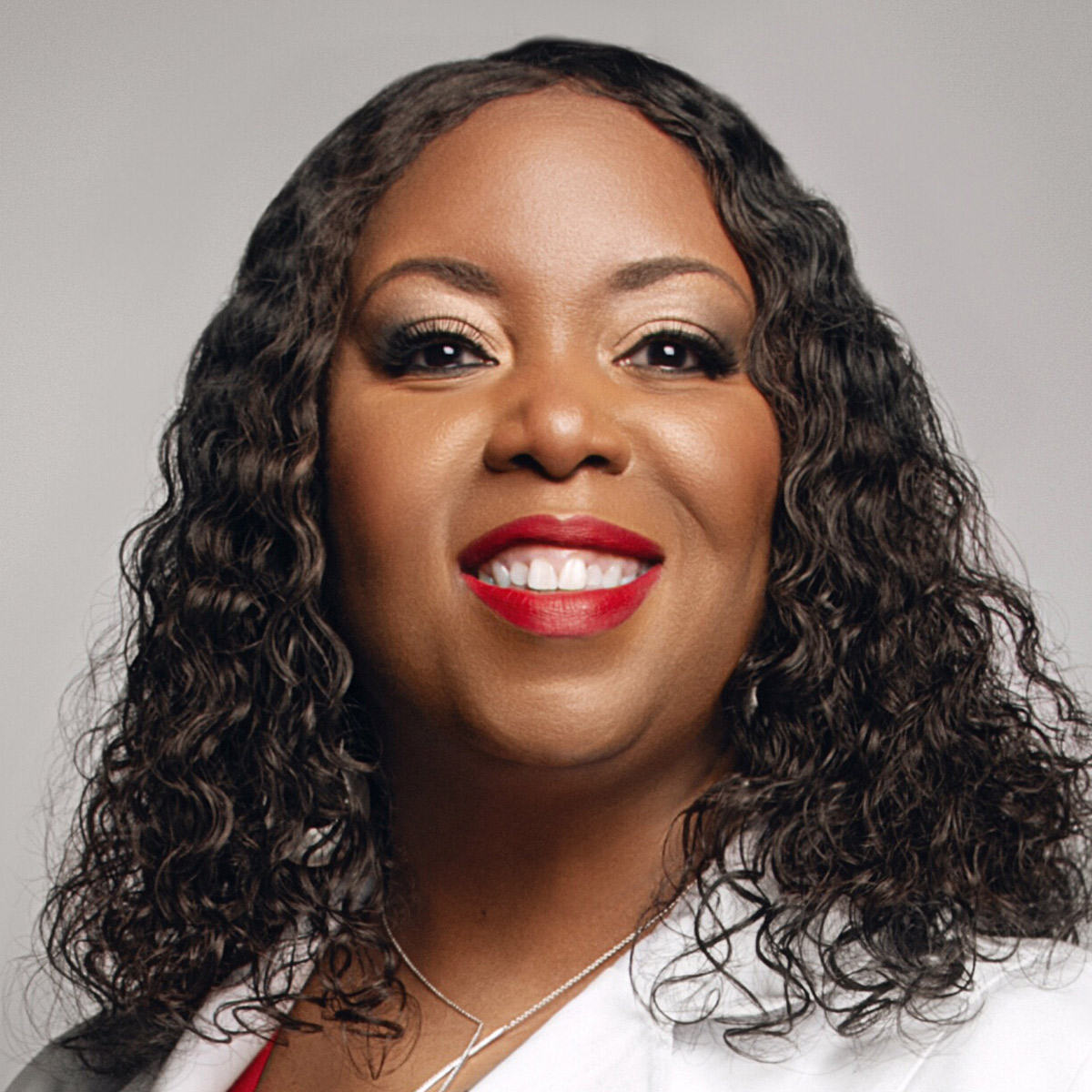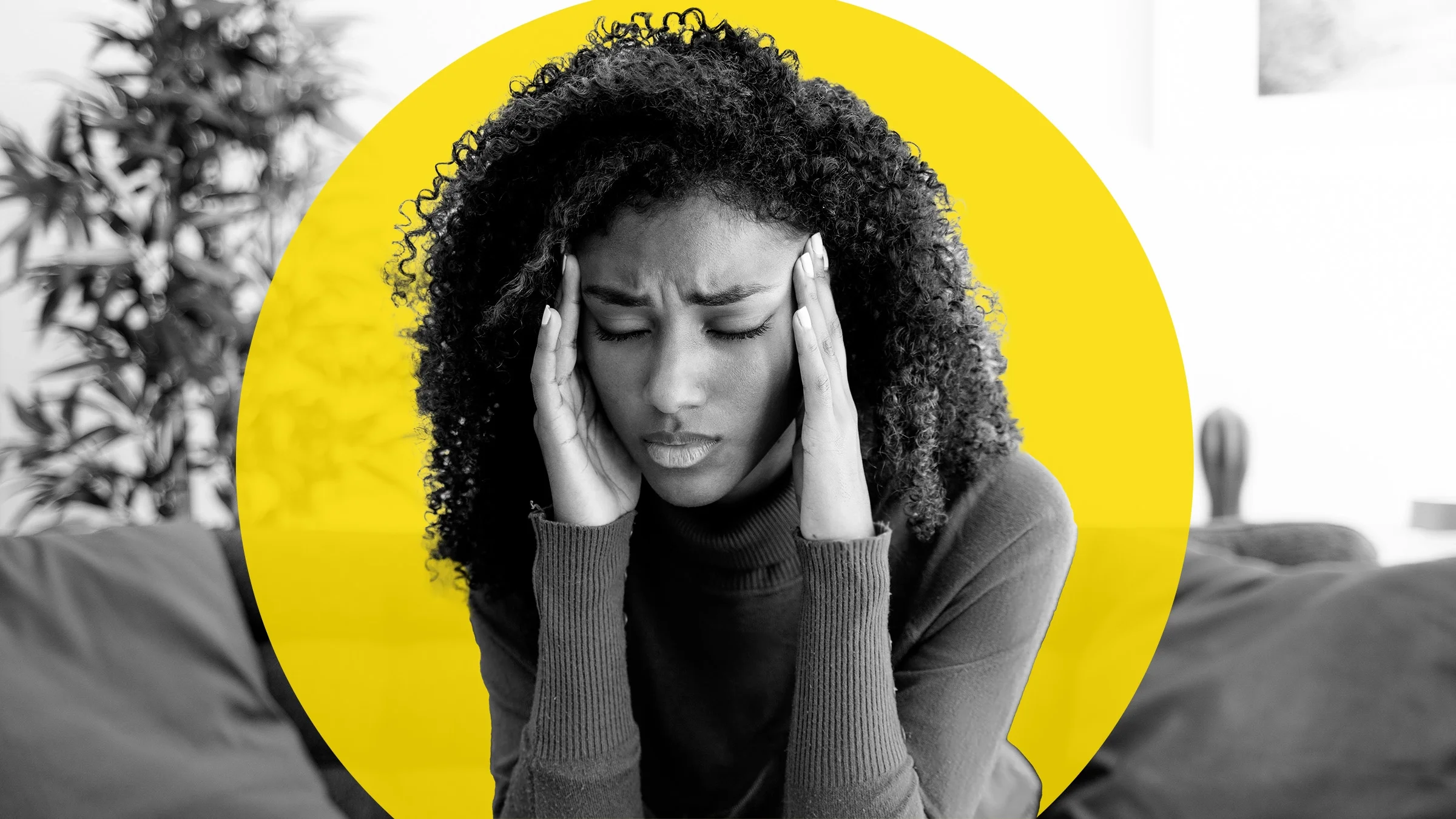Key takeaways:
Migraines can be debilitating and affect your quality of life. Finding and avoiding the triggers for your migraines can help prevent them.
It can be difficult to know the exact cause of your migraines. A headache diary can help to make it clear if there are patterns to your headaches.
If finding and/or avoiding your triggers isn’t possible, speak with a healthcare professional about treatment.
Migraines can be intense and long-lasting. They can be so intense that they interfere with your quality of life and knock you down for the count. On top of the intensity, migraines can seem to strike without rhyme, reason, or warning. But when you take a closer look, you may see a pattern. There might be certain triggers that cause your migraines.
In fact, researchers have found several migraine triggers. Avoiding, or trying to limit, those triggers can be the key to enjoying more headache-free days.
Here are 11 common migraine triggers that you may want to know.
1. Stress
Stress shows up in many different ways in the body. A migraine headache is one of the ways people experience stress. Stress is a trigger in over 70% of people with migraines. So if you have a lot on your plate and are suffering from migraines, you aren’t alone.
There are a few theories on why stress can cause migraines. Emotional stress can lead to changes in the levels of serotonin (a substance that carries messages between nerves). These changes may turn on the switch for a migraine.
Stress is often associated with poor sleep and unhealthful food choices. These are also triggers that can leave you open to a migraine attack. Decreasing your stress levels may be the key to fewer headaches. Some ways you might reduce your stress include:
Deep breathing
Relaxation techniques
Yoga
Spending time outdoors
2. Changes in sleep
Sleep patterns and migraines are closely linked. A common area of the brain controls both sleep and pain, and sleep disorders and migraine commonly coexist. Not getting enough sleep triggers up to 50% of people with migraines. It’s also possible for migraines to be triggered by too much sleep or irregular sleeping patterns.
It’s not entirely clear why this happens. But sleep disturbances may cause a change in chemical pathways in the brain, making you more sensitive to migraines. It’s easier said than done, but following a consistent sleep schedule may help. You can also talk with a healthcare professional if you’re struggling with sleep.
3. Shifts in hormones
Changes in hormone levels can also trigger migraines. This often happens around the menstrual cycle. A drop in estrogen occurs right before your monthly cycle begins. This can trigger a menstrual migraine. Menstrual migraines typically start a few days before or after your cycle.
Finding the right migraine medication: It can be tricky, since there’s no silver bullet. The first step is to learn about the different types of treatments.
Real migraine stories: Read about how three people living with chronic migraines manage their symptoms every day.
OTC migraine medications: Both Advil Migraine and Excedrin Migraine can help provide migraine relief, but is one better than the other? See how they compare.
In the same way, people nearing menopause may have migraines due to changes in hormone levels. Hormone therapy may help prevent these headaches by keeping estrogen levels consistent.
Migraines also occur in people taking hormonal birth control. This typically happens during the placebo week of birth control, when you don’t take any hormones. This causes your estrogen levels to take a deep plunge. It might help to take your birth control continuously or reduce the placebo days to decrease the risk of this type of migraine.
Experts recommend that people who have a history of migraines with aura don’t take certain types of hormonal birth control. This is due to an increased risk of stroke. It’s a good idea to ask your healthcare team for guidance if you have migraines and are considering contraception options.
Read more like this
Explore these related articles, suggested for readers like you.
4. Caffeine or alcohol
Caffeine is commonly thought of as a migraine trigger. Caffeine affects blood flow in the blood vessels of the brain. Some research suggests too much caffeine can trigger migraines, but other research doesn’t support the link. So it might be a matter of finding the “right” amount for you and being consistent with your daily consumption.
Alcohol can also increase your risk for migraines. Alcohol also affects the blood vessels, causing them to widen. The increased blood flow and the activation of pain receptors may be the cause of more headaches.
But there’s no need to swear off caffeine or alcohol entirely. In fact, many over-the-counter (OTC) migraine medications have caffeine. And some people can tolerate an occasional drink of alcohol.
5. Dehydration
Dehydration can trigger any type of headache, including migraine. Plus, it can make you more sensitive to pain.
It’s important to drink plenty of water to stay hydrated. Also know that caffeine and alcohol can also increase the number of trips you make to the bathroom. This increases your risk of dehydration and can also cause more headaches.
6. Weather changes
Changing weather is a less common trigger of migraines. Humidity and atmospheric pressure changes, in particular, can affect some people, as well as, bright sun, warm temperatures, and high winds.
Overall, the data on the link between weather and migraines isn’t strong. And it isn’t clear why the weather is a factor. But it may be that fluctuations in air pressure trigger blood flow changes.
7. Certain foods
Many people with migraines report that certain foods can trigger their migraines. It’s not clear why this happens, but there are a few different theories. It may be due to inflammation or effects on brain cells and neurotransmitters.
Foods that make the short list of common migraine triggers are:
Aged cheese
Monosodium glutamate (MSG)
Processed meats
Artificial sweeteners
Nuts
8. Skipped meals
It can help to avoid trigger foods, but it’s also important not to skip meals entirely. In fact, over 40% of people report fasting as a migraine trigger.
This may be related to how hypoglycemia (low blood sugar) affects the brain, but more research is needed to be sure. Experts say eating regular, balanced meals can help those who find that fasting triggers their pain.
9. Light, sound, and smell
Another trigger for migraines is heightened sensitivity to light, sound, and smell. And it can also lead to more intense headache pain. A low tolerance for either lights, sound, or smell is present more often than not during a migraine attack.
This may be due to connections between the areas in the brain that process your senses and headache pain.
Strong odors, loud noises, and bright lights can also cause headaches in the workplace. If you are only getting headaches on days you’re at work, this may be the reason.
10. Exertion
If you feel a headache coming on during or shortly after a workout, it could be an exertion migraine. This may be due to the release of certain chemicals during exercise that increase your awareness of pain. Other physical activities can trigger a migraine, including:
Swimming
Sex
Coughing
Straining on a toilet
Some tips that may help to prevent a migraine from exercise include:
Warming up before exercise
Slowly ramping up intensity of exercise over time
Being consistent in your routine
Taking nonsteroidal anti-inflammatory drugs (NSAIDs) an hour before exercise (check with a healthcare professional first)
11. Tobacco
Researchers have established a link between smoking and headaches (including migraine). But there’s not much solid evidence about the relationship. Not much is known about tobacco use and migraine frequency.
That said, there’s never a bad time to quit smoking. Doing so has many benefits for your health, aside from its effect on headaches.
How can I determine the cause of my migraine?
The exact cause of your migraine headache may not always be clear. Usually there’s a combination of triggers that happen at the same time. This can make it hard to isolate what’s causing your migraines. For example, changes in the weather plus a few sleepless nights may both be a trigger for your migraine.
It can also be tough to know what’s causing your migraines because some triggers can lead to others. There could be a cycle where a trigger is causing your migraine, and the migraine is causing more of the trigger. This means stress might be the reason for your headache, and the headache might be the reason for more stress.
A headache journal is a useful tool to help find patterns and determine your triggers. You can use a journal or an app to write down the details of your migraine. Some helpful things to take note of include:
Sleep schedule
Eating schedule
Foods you ate
Weather conditions
Stress level
It’s helpful to capture as much information as possible leading up to the migraine. You may not realize something is triggering you until you have had more than one migraine.
Frequently asked questions
Some medications are more likely to trigger migraines than others. They include biologic medications, which treat autoimmune conditions, and antiretroviral medications. If you think your medication is triggering your migraine headaches, it’s important to speak with your healthcare team before stopping the medication.
It’s also possible to get rebound, or medication overuse, headaches if you’re relying on medication too often to treat symptoms.
It’s possible. This relationship has been reported by some. About 15% of people with allergies also have migraines. But overall the evidence is mixed. Genetic research doesn’t support a cause-and-effect relationship between allergic rhinitis and migraine risk.
The good news is there are many different options when it comes to migraine treatment, from medications to devices to acupuncture. If you’re struggling to get a handle on your migraines, speak with a healthcare professional. They can help point you in the right direction so you get some relief.
Some medications are more likely to trigger migraines than others. They include biologic medications, which treat autoimmune conditions, and antiretroviral medications. If you think your medication is triggering your migraine headaches, it’s important to speak with your healthcare team before stopping the medication.
It’s also possible to get rebound, or medication overuse, headaches if you’re relying on medication too often to treat symptoms.
It’s possible. This relationship has been reported by some. About 15% of people with allergies also have migraines. But overall the evidence is mixed. Genetic research doesn’t support a cause-and-effect relationship between allergic rhinitis and migraine risk.
The good news is there are many different options when it comes to migraine treatment, from medications to devices to acupuncture. If you’re struggling to get a handle on your migraines, speak with a healthcare professional. They can help point you in the right direction so you get some relief.
The bottom line
Migraine headaches can be a real pain. This is especially true when you are unsure of the cause. Determining your triggers can give you an edge when managing the pain. And a headache journal can be a helpful tool for you to do that. Talk with a healthcare professional to learn more about how you can avoid any triggers and cut back on your migraines.

Why trust our experts?



References
Aggarwal, M., et al. (2012). Serotonin and CGRP in migraine. Annals of Neurosciences.
American Headache Society. (2018). The truth behind different migraine triggers addressed at the American Headache Society’s 60th annual scientific meeting.
American Migraine Foundation. (2019). Navigating life with migraine in the workplace.
American Migraine Foundation. (2023). Primary exercise headache.
American Migraine Foundation. (2023). What medications are commonly linked to headache?
Amin, F. M., et al. (2018). The association between migraine and physical exercise. The Journal of Headache and Pain.
Arca, K. N., et al. (2021). Dehydration and headache. Current Pain and Headache Reports.
Association of Migraine Disorders. (n.d.). Migraine triggers.
Bernstein, J. A., et al. (2024). Allergic rhinitis: A review. JAMA.
Champaloux, S. W., et al. (2017). Use of combined hormonal contraceptives among women with migraines and risk of ischemic stroke. American Journal of Obstetrics and Gynecology.
Denney, D. E., et al. (2021). Whether weather matters with migraine. Current Pain and Headache Reports.
Fernández-de-las-Peñas, C., et al. (2017). Sleep disturbances in tension-type headache and migraine. Therapeutic Advances in Neurological Disorders.
Gan, W. Q., et al. (2016). Association between overall and mentholated cigarette smoking with headache in a nationally representative sample. Headache.
GBD 2016 Headache Collaborators. Global, regional, and national burden of migraine and tension-type headache, 1990–2016: A systematic analysis for the Global Burden of Disease Study 2016. The Lancet Neurology.
Goadsby, P. J., et al. (2017). Pathophysiology of migraine: A disorder of sensory processing. Physiological Reviews.
Güvenc, I. A., et al. (2017). Is there an association between migraine and allergic rhinitis? Ear, Nose & Throat Journal.
Hindiya, N. A., et al. (2020). The role of diet and nutrition in migraine triggers and treatment: A systematic literature review. Headache.
Jahromi, S. R., et al. (2019). Association of diet and headache. The Journal of Headache and Pain.
Kesserwani, H. (2021). Migraine triggers: An overview of the pharmacology, biochemistry, atmospherics, and their effects on neural networks. Cureus.
Lin, Y., et al. (2016). Associations between sleep quality and migraine frequency. Medicine.
Lv, H., et al. (2024). No causal association between allergic rhinitis and migraine: A Mendelian randomization study. European Journal of Medical Research.
Lyall, M., et al. (2023). Considerations for contraceptive use among patients with migraines. Current Obstetrics and Gynecology Reports.
MacGregor, E. A. (2018). Migraine, menopause and hormone replacement therapy. Post Reproductive Health.
Meylakh, N., et al. (2022). Exploring alterations in sensory pathways in migraine. The Journal of Headache and Pain.
Mostofsky, E., et al. (2019). Prospective cohort study of caffeinated beverage intake as a potential trigger of headaches among migraineurs. The American Journal of Medicine.
Nappi, R. A., et al. (2022). Role of estrogens in menstrual migraine. Cells.
Okuma, H., et al. (2015). Examination of fluctuations in atmospheric pressure related to migraine. SpringerPlus.
Panconesi, A. (2008). Alcohol and migraine: Trigger factor, consumption, mechanisms. A review. The Journal of Headache and Pain.
Panconesi, A. (2016). Alcohol-induced headaches: Evidence for a central mechanism? Journal of Neurosciences in Rural Practice.
Park, J., et al. (2016). Analysis of trigger factors in episodic migraineurs using a smartphone headache diary application. PLoS One.
Sacco, S., et al. (2012). Migraine in women: The role of hormones and their impact on vascular diseases. The Journal of Headache and Pain.
Tiseo, C., et al. (2020). Migraine and sleep disorders: A systematic review. The Journal of Headache and Pain.
Waliszewska-Prosół, M., et al. (2021). Migraine and sleep—an unexplained association? International Journal of Molecular Sciences.
Weinberger, A. H., et al. (2023). The relationship of tobacco use and migraine: A narrative review. Current pain and headache reports.

















